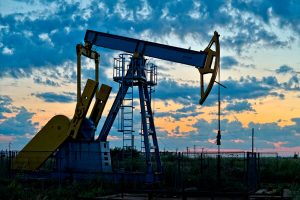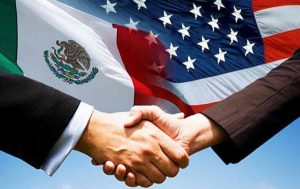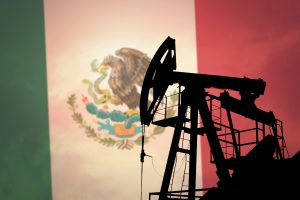Mexico Likely To Keep Making The World’s Biggest Oil Hedge
Baystreet Staff / Tsvetana Paraskova / Oilprice / July 9
The Mexican oil hedge, or the Hacienda Hedge, is considered the biggest hedging bet on Wall Street as well as perhaps the most secretive. It has earned Mexico—and a few large investment banks—billions of U.S. dollars.
Mexico buys put options from investment banks and typically hedges a whopping 200-300 million barrels of oil a year. With the put options, it has the right, but not the obligation, to sell oil at a previously set price and timing. But will this tradition continue under the newly elected administration?
Throughout his campaign, Mexico’s now president-elect Andres Manuel Lopez Obrador kept the oil industry on edge with comments and promises that he would review the landmark 2013 energy reform of outgoing President Enrique Peña Nieto that ended seven decades of oil monopoly in the country.
But the first signals from Lopez Obrador’s staff and advisors after he won Mexico’s presidential election last weekend are that the new president would not seek to backtrack on the energy reform, which allowed foreign oil firms to win contracts to pump Mexican oil.
Leftist Lopez Obrador and the new government, set to take office on December 1, will also likely continue with Mexico’s annual oil hedging program—considered to be the biggest annual oil hedge deal on Wall Street—an economic advisor to the president-elect told Bloomberg this week.
For 2018, Mexico locked in last year an average export price of US$46 per barrel of crude oil with its oil hedge. According to data by Mexico’s Finance Ministry, the country spent the equivalent of around US$1.25 billion on the oil hedge program for 2018, which was 21 percent higher than the oil hedge in 2016 to lock in prices for 2017. Mexico’s spending on the world’s biggest oil hedge has been at around US$1 billion over the past few years. State-run Petroleos Mexicanos (Pemex) is also hedging part of its production.
According to a member of president-elect Lopez Obrador’s economic team, Mexico’s oil hedge and the Pemex hedge are “working fine” and are likely to be left unchanged.
“The formula by which the government is calculating the price of oil is a very stable formula,” Abel Hibert told Bloomberg. “Using the hedges reduces uncertainty in financial markets,” the economic advisor said, adding, however, that the hedging program was not mentioned when energy policies were discussed at a meeting of the transition team this week.
Reducing uncertainty seems to be the key message from Lopez Obrador’s team after the election, even beyond the hedging program for oil.
Alfonso Romo, who is tipped to be the next president’s chief of staff, says that the new administration doesn’t want to create uncertainty and that there won’t be rescinding of the energy reform.
“What do we want to do? We want to take advantage of all of the enthusiasm we’ve generated to fix everything we can,” Romo told Bloomberg in an interview. “What don’t we want? To create uncertainty. Zero. I’m terrified of that.”
The incoming president’s chief of staff also said that he didn’t see changes to the 2013 reform.
“If anything happens, it would be done without hurting private investment,” Romo told Bloomberg.
With the energy reform of the outgoing president Peña Nieto, Mexico has attracted oil majors of the likes of ExxonMobil, Chevron, Shell, and Eni to its offshore areas, as it seeks to reverse a decline in its oil production.
Mexico needs a lot of money for offshore drilling, and “no one will fight success” if it manages to boost oil production, according to Romo.
The president-elect Lopez Obrador has said that he would have the already awarded contracts scrutinized for irregularities. But neither Romo nor the likely incoming finance minister Carlos Urzua expects the review of the contracts to reveal acts of corruption.
“If it looks good, on we go. It’s a contract we have to respect,” Urzua told Mexican television on Wednesday.
We are still five months away from the new president and government taking office, but the first messages after the election point that Mexico wants to reassure foreign oil investors and seek reconciliation rather than confrontation.
Baystreet Staff / Tsvetana Paraskova / Oilprice / July 9




